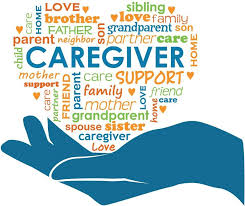
Changes are happening
Many institutions and cancer centers have put restrictions on visitors accompanying patients for outpatient appointments. This includes patients that are receiving cancer treatments, such as radiation therapy or chemotherapy. Most guidelines now state that patients can’t have anyone accompany them unless they are unable to complete the visit on their own. As a friend, family member, advocate, helper or caregiver this means you may be faced with the challenge of finding new ways to care for your loved ones and to communicate with their healthcare team.
It might seem daunting to continue assisting your loved one if you cannot be physically present. However, there are a multitude of things you can do from a distance to stay involved in their care and to support them. While you are helping from a distance, be assured that your loved one’s healthcare team is taking the extra steps to comfort and educate patients.
Ways to Help while Keeping your Distance:
- Contact the healthcare team and ensure they have your contact information.
- Sign a release to receive any medical information or get written permission if needed.
- Keep all appointment dates and medical records, including current treatments and updated medication lists, together in a folder. Consider having two copies – one for you, and one for the patient.
- Arrange conference calls with the healthcare team or be on the phone to listen in when your loved one is seeing their provider.
- If you can’t be on the phone, ask that visits with the healthcare team be recorded so that you can listen later.
- Help organize health insurance documents and medical bills.
- Make phone calls, such as follow up or file health insurance claims.
- Help to research relevant topics or find practical/financial/legal resources.
- Provide support with healthcare decisions.
- Assist if in-home care or hospice needs to be arranged.
- Provide emotional support via phone calls, video calls, letters, care packages, social media, email, and text.
- Update other family members and loved ones about current status and new developments.
- Encourage friends and family to also show continued support from a distance.
Showing support from a Safe Distance:
This was a great article about a husband continuing to show support for his wife when he wasn’t allowed to be with her for her chemotherapy treatment.
Consider these options to provide continued support with daily tasks while practicing a safe distance:
- Help get medication refills and drop off or set up home delivery.
- Order food, groceries or other necessities to be delivered to their home.
- Bring their mail/newspaper to their door or ask a neighbor to do so.
- Help with yard work, trash, laundry, etc.
- Run bank errands.
- Record and share a concert, show, or any other talents you may have by FaceTime or other video platform.
Care for the Caregivers:
- Stay active – take daily walks.
- Follow a healthy diet.
- Stay organized – make to-do lists and run all errands together.
- Take breaks when needed and make time for yourself.
- Ensure you are getting enough sleep and taking care of yourself.
- Find social time for yourself.
- Find hobbies and interests for yourself – like puzzles, knitting, or cooking.
- Join a caregiver’s support group.
- Recruit help – let friends, family and neighbors help where you see fit.
What role does the healthcare team play?
It is important for the healthcare team to remember that many patients now come alone for their treatment. It is probable that patients are feeling fearful, overwhelmed and confused. Having a caregiver present often helps with continuity of information or to ensure follow-through on instructions. I have already witnessed confusion in patients that are coming alone: stopping the wrong medicines, mixing up next steps for radiation, or relaying wrong information to family members.
How can the healthcare team and caregivers work together to make sure all of our patients are safe and are receiving the best care possible?
- Spend adequate time ensuring that your patients understand instructions while following social distancing guidelines.
- Taking extra steps to talk with caregivers at home via phone or messaging when treatment plans or medications change.
- Communicate with patients prior to their arrival so they can best address the patients’ needs in a shortened period of time.
- And, as always, maintain quality care for each patient and their families through clear instructions regarding medications, side effect management and other items needed to safely complete their prescribed cancer treatment.
Effective communication and compassionate patient care are always essential but now more than ever. These current circumstances compel us to re-examine our protocols assuring we are doing our very best in our current normal. In truth, moving forward the application of many of these principles can do nothing but enhance our continued services and our patients’ lives.
Courtney is a Radiation Therapist at Penn Medicine in the Department of Radiation Oncology. She completed her Bachelor’s Degree in Radiation Therapy from Indiana University, and received her Master’s Degree in Public Health with concentrations in Health Management and Policy and Health Education and Promotion from Benedictine University. She has fourteen years of experience in radiation therapy, which includes an expertise in proton therapy and pediatrics. Courtney has worked with OncoLink since 2014, but joined part-time in 2020 as a Global Education Coordinator and is currently developing virtual reality training modules that have been used to train radiation therapists both domestically and internationally.
I have ovarian cancer the last four years my case is chronic and I will be starting chemo very soon . I have had 18 chemo treatments and two major surgeries. I am strong and I survived each time. I am worried this time around my immune system is weak and I lost a lot of weight. I continue to remain positive for my two kids. They are everything to me .